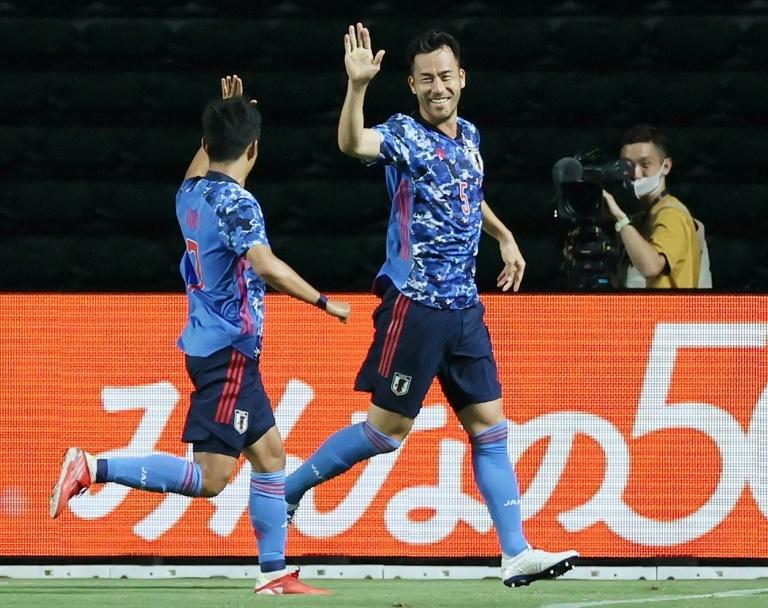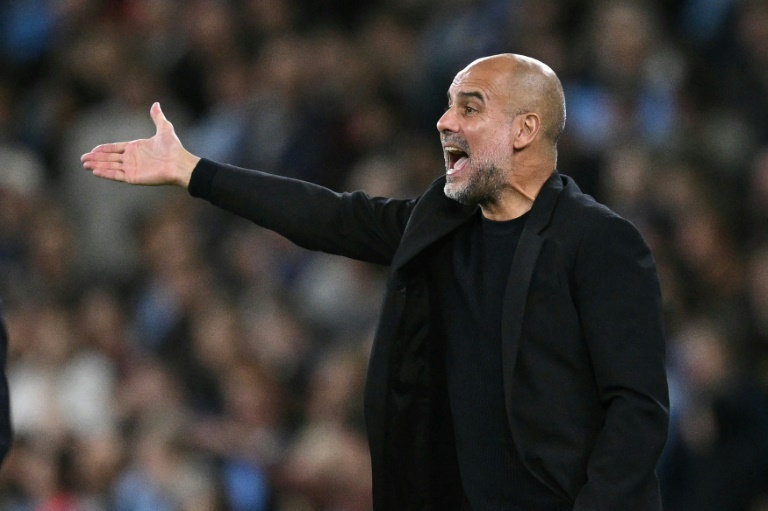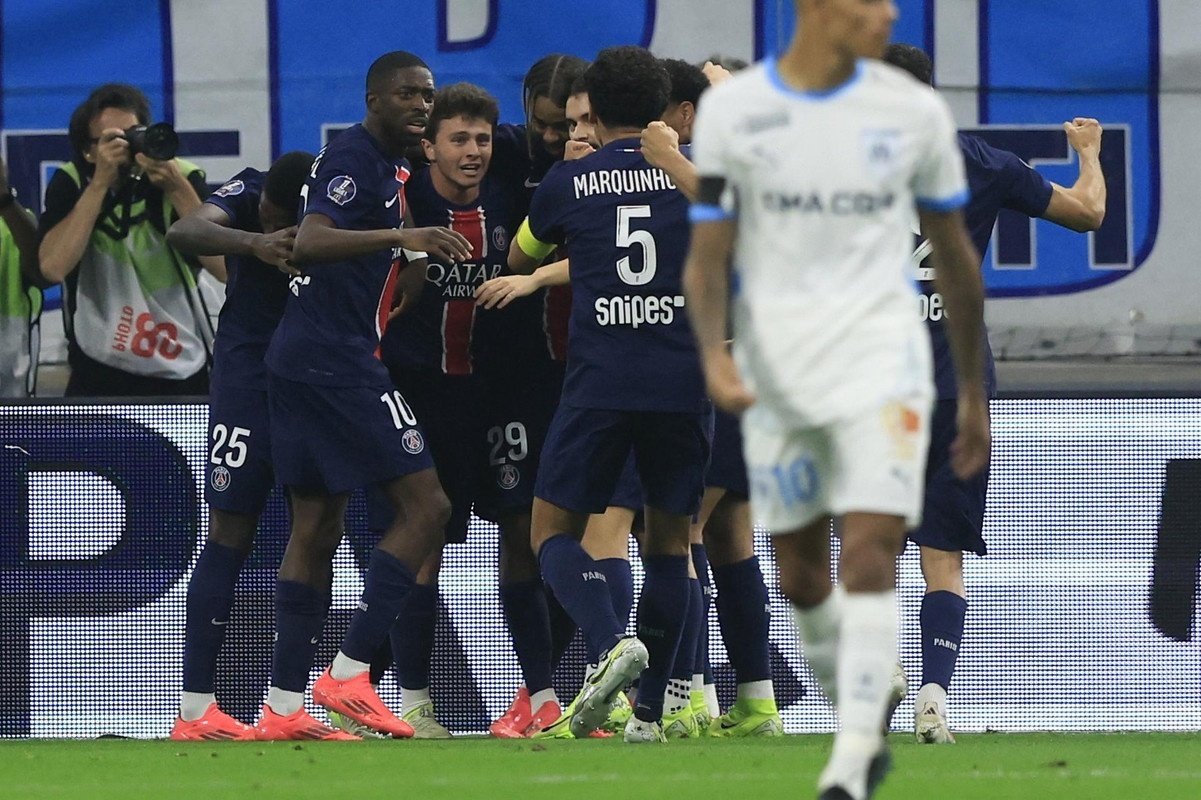A boy named Maya: Japan's Yoshida targets historic last-16 berth

Maya Yoshida is the tough-tackling defender with a girl's name who will try to lead Japan into uncharted territory in Qatar, a tournament likely to be his World Cup swansong.
2 years ago
Yoshida's third World Cup and his first with the captain's armband will see Japan face Germany, Spain and Costa Rica in a daunting Group E.
The 34-year-old will be readier than ever, having racked up more than 120 international caps over 12 years as the undisputed cornerstone of Japan's defence.
The Schalke centre back has also developed into a cultured man of the world during his long club career in Europe, even claiming he feels "25 percent English" after spending almost eight years at Southampton and gaining permanent UK residency.
Yoshida might even have been a member of Japan's 2011 Women's World Cup-winning squad had his mother's wish for a daughter been realised.
She decided to call her third child Maya -- usually a girl's name in Japan -- and stuck with it even after discovering she would be giving birth to another son.
Yoshida has since gone on to become one of Japan's greatest defenders and a popular figure known for his down-to-earth character and wry sense of humour.
John Bailey, host of the Southampton's Saints FC Podcast, told the Athletic in 2020 that the defender "exudes a sort of friendly demeanour and a feeling that he'd be a great mate".
"When we asked our listeners which Saints player they would most like to go for a drink with, Yoshida came out top," he said.
But Yoshida is no pushover, as Saudi Arabian fans found out last year during a World Cup qualifier in Jeddah.
The Japan captain responded to what he claimed were "discriminatory gestures" after the match, marching towards the fence separating the supporters from the pitch, jabbing his finger and remonstrating with them.
- Class act -
Yoshida joined German side Schalke this season after a two-and-a-half-year stint in Italy with Sampdoria, having left Southampton in early 2020.
He puts his longevity in Europe down to his willingness to adapt, working just as hard on his language skills as he does on the training pitch.
He struggled to understand Liverpool-born team-mate Rickie Lambert when he first arrived at Southampton, but he is now fluent in English and he says learning swear words helped him to integrate better.
"The problem of people who cannot speak English -- this is a problem with Japanese education," he told the Independent in 2015.
"After six years studying English, people can read English, understand a little bit, but they cannot speak English. It's English for an exam, not for talking."
Yoshida is a hugely respected figure in his native Japan and he was the natural choice to inherit the armband when former captain Makoto Hasebe retired from international duty after the 2018 World Cup.
Yoshida is not without his shaky moments, however, and he was given a torrid time in Japan's 3-0 Kirin Cup defeat to Tunisia in June.
But he is determined to lead his country into the World Cup quarter-finals for the first time in Qatar, with the Asian side having lost in the last 16 three times.
Four years ago in Russia, Japan were 2-0 up midway through the second half of their round-of-16 match against a star-studded Belgium before agonisingly conceding three late goals.
"I want to get past (the last 16) for myself and also to create Japanese sporting history," he told Kyodo news agency in May.
The 34-year-old will be readier than ever, having racked up more than 120 international caps over 12 years as the undisputed cornerstone of Japan's defence.
The Schalke centre back has also developed into a cultured man of the world during his long club career in Europe, even claiming he feels "25 percent English" after spending almost eight years at Southampton and gaining permanent UK residency.
Yoshida might even have been a member of Japan's 2011 Women's World Cup-winning squad had his mother's wish for a daughter been realised.
She decided to call her third child Maya -- usually a girl's name in Japan -- and stuck with it even after discovering she would be giving birth to another son.
Yoshida has since gone on to become one of Japan's greatest defenders and a popular figure known for his down-to-earth character and wry sense of humour.
John Bailey, host of the Southampton's Saints FC Podcast, told the Athletic in 2020 that the defender "exudes a sort of friendly demeanour and a feeling that he'd be a great mate".
"When we asked our listeners which Saints player they would most like to go for a drink with, Yoshida came out top," he said.
But Yoshida is no pushover, as Saudi Arabian fans found out last year during a World Cup qualifier in Jeddah.
The Japan captain responded to what he claimed were "discriminatory gestures" after the match, marching towards the fence separating the supporters from the pitch, jabbing his finger and remonstrating with them.
- Class act -
Yoshida joined German side Schalke this season after a two-and-a-half-year stint in Italy with Sampdoria, having left Southampton in early 2020.
He puts his longevity in Europe down to his willingness to adapt, working just as hard on his language skills as he does on the training pitch.
He struggled to understand Liverpool-born team-mate Rickie Lambert when he first arrived at Southampton, but he is now fluent in English and he says learning swear words helped him to integrate better.
"The problem of people who cannot speak English -- this is a problem with Japanese education," he told the Independent in 2015.
"After six years studying English, people can read English, understand a little bit, but they cannot speak English. It's English for an exam, not for talking."
Yoshida is a hugely respected figure in his native Japan and he was the natural choice to inherit the armband when former captain Makoto Hasebe retired from international duty after the 2018 World Cup.
Yoshida is not without his shaky moments, however, and he was given a torrid time in Japan's 3-0 Kirin Cup defeat to Tunisia in June.
But he is determined to lead his country into the World Cup quarter-finals for the first time in Qatar, with the Asian side having lost in the last 16 three times.
Four years ago in Russia, Japan were 2-0 up midway through the second half of their round-of-16 match against a star-studded Belgium before agonisingly conceding three late goals.
"I want to get past (the last 16) for myself and also to create Japanese sporting history," he told Kyodo news agency in May.







Comments